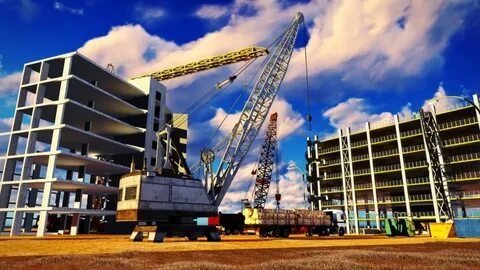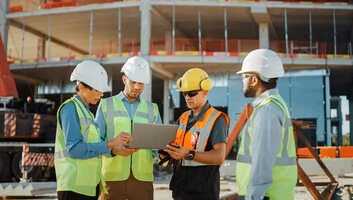Introduction:
The construction industry is an ever-evolving landscape, constantly adapting to incorporate novel technologies and pioneering methodologies to bolster productivity, environmental sustainability, and safety standards. Leading construction companies aspire to maintain a competitive edge by seamlessly weaving these cutting-edge practices into their projects, thereby steering the trajectory of construction methodologies. Within this dynamic field, the quest to be recognized as the best construction company in Delhi is an ongoing endeavor, driving firms to innovate and implement groundbreaking approaches that redefine the industry’s benchmarks for excellence and proficiency.
In recent years, advancements in construction techniques have revolutionized the way buildings and infrastructure are designed and built. Here, we’ll explore ten transformative approaches driving this change and paving the way for the future of construction.
1.3D Printing: A Game-Changer in Construction
Introducing 3D printing into construction has heralded a paradigm shift in the industry. This groundbreaking technology redefines the traditional construction approach by enabling the fabrication of complex building components and complete structures with remarkable precision and swiftness. Its advent drastically curtails construction duration while minimizing material wastage, illustrating a transformative evolution towards more efficient and sustainable building methodologies.
2.Prefabrication and Modular Construction
Prefabrication and modular construction have emerged as game-changing methods in the industry. Prefabrication, the assembly of building components off-site, simplifies the construction process. Simultaneously, modular construction, where factory-built sections are transported for assembly, enhances quality control and accelerates project timelines. These techniques represent a paradigm shift, heralding an era of more efficient, faster, and higher-quality construction practices, reshaping the landscape of building development.

3.Building Information Modeling (BIM)
Embracing Building Information Modeling (BIM) heralds a paradigm shift in construction. This groundbreaking technology facilitates the creation of comprehensive digital models that transcend traditional blueprints. These intricate models provide a holistic view, not just during construction but also throughout the building’s lifecycle. By fostering seamless collaboration among various stakeholders, BIM optimizes design precision, resource allocation, and ongoing maintenance, fundamentally reshaping the industry’s approach to construction projects.
4.Augmented Reality (AR) and Virtual Reality (VR)
AR and VR are spearheading a transformation in the construction landscape. These cutting-edge technologies offer immersive experiences for comprehensive design evaluations, intricate training simulations, and vivid on-site visualization, revolutionizing how projects are conceptualized and executed. Their integration facilitates early error detection, fostering meticulous planning and enabling seamless coordination among teams, ultimately enhancing precision and efficiency throughout the construction process.
5.Use of Drones in Construction Industry
The utilization of drones has fundamentally altered construction practices, emerging as indispensable tools for various tasks. These aerial marvels play a multifaceted role, executing site surveys, overseeing project advancement, and fortifying safety measures. Their vantage point facilitates precise data gathering, enabling meticulous analysis that enhances decision-making processes and operational efficiency on construction sites. This integration of drones has revolutionized the industry, ushering in a new era of technological prowess and streamlined construction methodologies.
6.Sustainable Construction Practices
The emphasis on sustainability has spearheaded the widespread adoption of eco-friendly materials, renewable energy integration, and certifications for green buildings. Top-tier construction companies meticulously prioritize sustainability, striving for projects that are not only energy-efficient but also conscientiously attuned to environmental concerns. Their commitment transcends mere construction; it’s a conscientious effort to harmonize progress with the preservation of our planet for the well-being of present and future generations.
7.Robotics and Automation
In the realm of construction, the integration of robotics and automation heralds a seismic shift. These technologies aren’t just altering tasks but redefining entire workflows. Robots adeptly handle various construction duties, from intricate bricklaying to meticulous site maintenance, profoundly augmenting productivity while prioritizing safety. The precision-driven automation streamlines operations, curbing reliance on manual labor and concurrently mitigating potential risks associated with traditional construction practices.
8.Smart Building Technologies
The integration of IoT (Internet of Things) devices and sensors within buildings marks a transformative stride in construction. This technological fusion empowers precise control and real-time monitoring of essential systems such as lighting, HVAC, and security. The implementation of smart technologies not only optimizes building performance but also revolutionizes user experience by ensuring heightened efficiency, sustainability, and comfort within the constructed environment.
Also explore: Blueprints to Brilliance: Inside the Minds of Construction Companies
9.Nanotechnology in Construction Materials
Nanotechnology stands as a frontier in revolutionizing construction materials. By harnessing the potential of nanoscale particles, it fundamentally alters material properties, endowing them with remarkable strength, enhanced durability, and even self-healing capabilities. These innovations pave the way for the development of structures that boast unprecedented resilience and longevity. Through the integration of nanomaterials, the construction industry is forging a path toward creating buildings and infrastructure that can withstand diverse challenges, ensuring sustainability and reliability in the long run.

10.Use of Renewable Energy in Construction
In the realm of construction innovation, the integration of renewable energy sources marks a pivotal advancement. Embracing technologies such as solar panels and wind turbines within architectural blueprints not only champions sustainability but also diminishes dependency on conventional power networks. This deliberate inclusion of renewable energy notches up the industry’s commitment to eco-conscious practices, forging a path towards a future where structures not only stand tall but also contribute positively to our planet’s well-being.
Conclusion:
The dynamic evolution of the construction industry is being propelled by these groundbreaking techniques. Leading construction companies are integrating innovative methodologies to expedite building erection, prioritize sustainability, and improve safety standards for the future. By employing innovative methods, the industry continually redefines construction boundaries, ensuring a more sustainable and eco-friendly built environment for future generations. Embracing these advancements is vital for a construction company in Delhi seeking to thrive amidst this transformative landscape.



